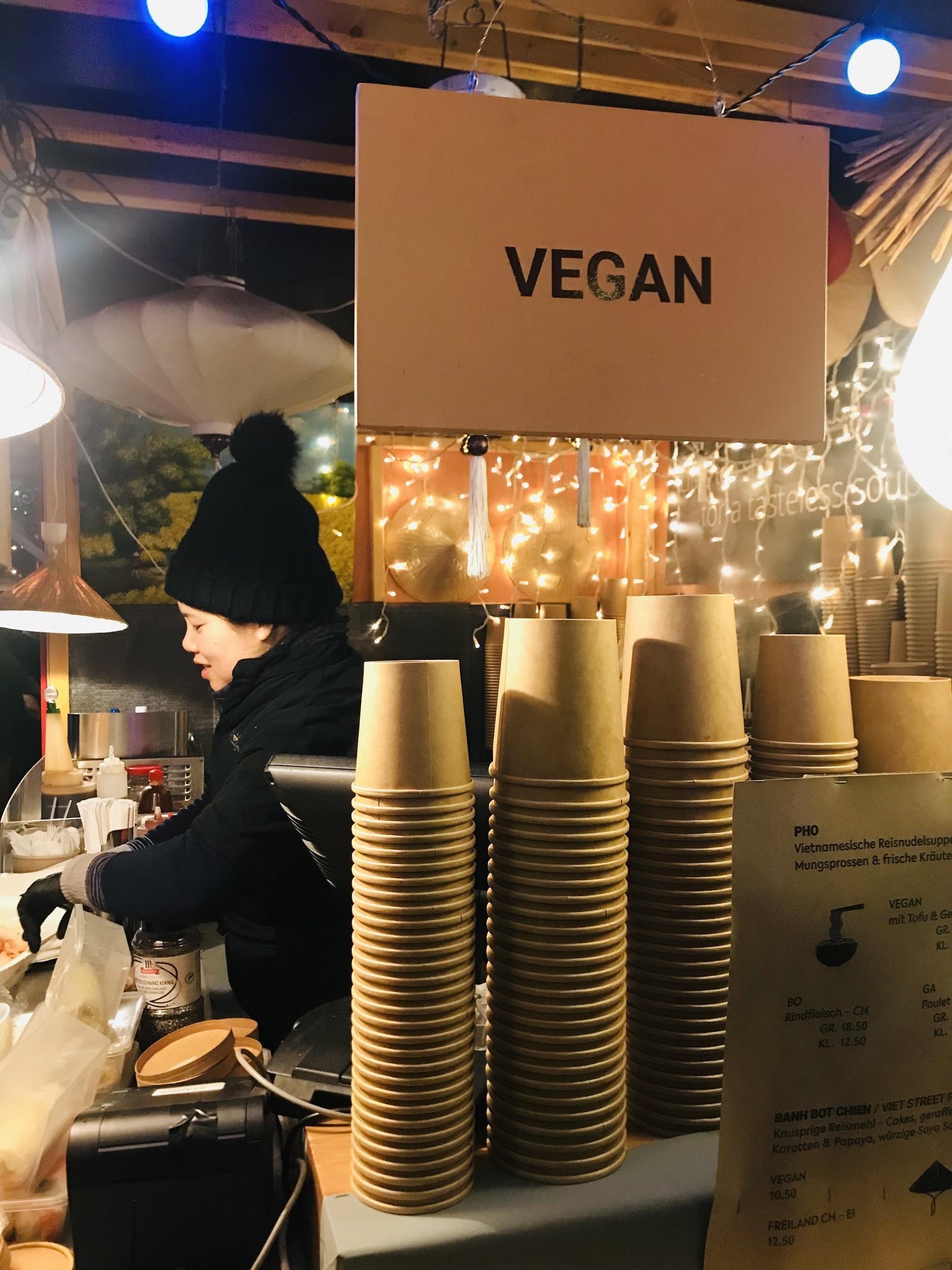
Demand for plant-based products shoots up in Switzerland

Plant-based burgers, schnitzels, yoghurt and other vegetarian or vegan substitute products are flying off Swiss supermarket shelves. Swiss retailers are therefore planning to expand their offer.
The turnover for such products has doubled compared with the previous year, said Lidl Switzerland ahead of World Vegan Day on Sunday. Lidl has a permanent range of more than 70 vegan and vegetarian products and even more during certain weeks.
Other retailers also expressed satisfaction with the development of their plant-based range in a survey conducted by the AWP news agency.
Restaurants and shops in the European Union should be allowed to label products as “veggie burgers” or “vegan sausages”, the European Parliament said on October 23, while calling for tighter curbs on labelling of plant-based dairy substitutes.
EU lawmakers voted to reject proposals, backed by farmers, to ban plant-based products from using terms such as steak, sausage or burger.
Farmers had argued that the using words like burger or sausage for non-meat products could mislead consumers.
But medical groups, environmentalists and companies that make vegetarian products have said that banning these terms would discourage consumers from shifting to more plant-based diets, undermining the EU’s environmental and health goals.
A majority of EU lawmakers also voted for stricter rules on labelling of dairy substitutes, backing a ban on terms such as “milk-like” or “cheese-style” for plant-based products that contain no dairy ingredients.
The European Court of Justice already banned terms like “soy milk” and “vegan cheese” three years ago, ruling that words such as milk, butter, cheese and yoghurt cannot be used for non-dairy products.
The labelling rules are part of a bigger EU farming policy package for 2021-2027, and are not final. Parliament must strike a compromise with EU member states on the final policy.
Switzerland is not a member of the EU.
(Reuters)
The demand for vegetarian and vegan products has been rising continuously for years, according to Migros, one of Switzerland’s two largest retailers along with Coop.
“Since the beginning of the year we’ve seen double-digit growth,” Migros said. Its plant-based brand V-Love, launched in July, was also growing above average, it added.
Migros said the share of vegetarian and vegan products in total sales continued to grow and it wanted to keep expanding the range. By mid-2020, it had around 700 vegetarian- and vegan-certified products.

More
Is it difficult being a vegetarian or vegan in Switzerland?
Partnership
Coop offers more than 1,200 certified vegetarian products. Five years ago, the range of meat substitutes was only a third of what it is today, a spokesperson said.
“The demand for plant-based products has been growing steadily for some time now. Coop is therefore also expanding its range in this area,” he said.
Aldi Switzerland was “very satisfied” with the sales development. However, it did not comment on sales “for business reasons”. It, too, is continuing to expand its vegan and vegetarian product range.
By the year 2025 it is expected to offer 300 products. For the expansion, Aldi said it was entering into a partnership with the Swiss Vegan Association.

More
Vegetarian supermarkets

In compliance with the JTI standards
More: SWI swissinfo.ch certified by the Journalism Trust Initiative































You can find an overview of ongoing debates with our journalists here . Please join us!
If you want to start a conversation about a topic raised in this article or want to report factual errors, email us at english@swissinfo.ch.